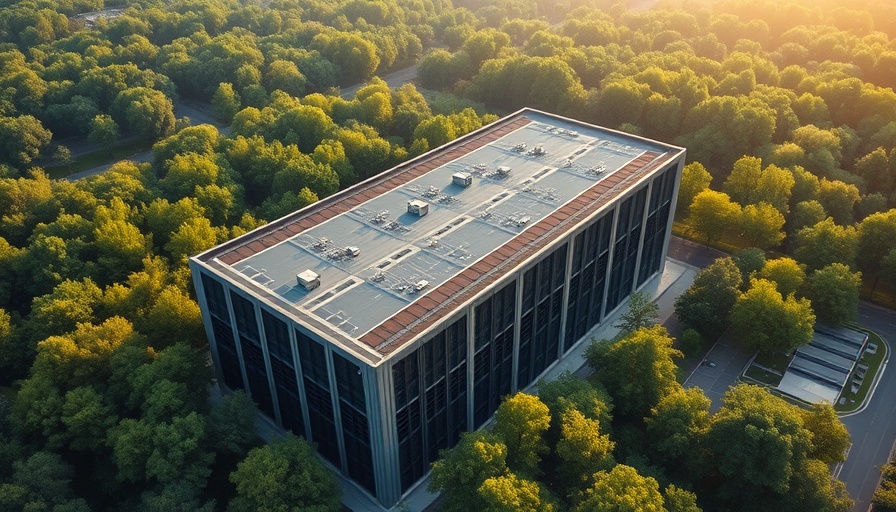
Revolutionizing Digital Infrastructure: Rack Centre's Game-Changing 12MW Data Centre in Nigeria
On April 10, 2025, a new landmark emerged over Lagos as Rack Centre officially launched the LGS2 12MW IT Load Data Centre, marking a transformative leap in Nigeria's digital landscape. Positioned as a premier Tier III carrier and cloud-neutral data centre, this facility is not just an engineering feat but a crucial backbone for future technology developments across the region.
Why the LGS2 Data Centre Matters for Nigeria's Tech Future
With the rapid advancements in AI in Africa, fintech, and other digital innovations, this data centre is perfectly timed to support Nigeria’s growing tech ecosystem. Rack Centre's Chairman, Maher Jarmakani, highlighted its significance during the unveiling, noting that it serves as a critical platform for connectivity that enhances communication and cloud service efficiency in Alausa, Nigeria's governmental hub. As these technologies evolve, robust infrastructure will be necessary to support African startups and attract global investment.
Investing in Sustainability: A Forward-Looking Approach
The vision behind the LGS2 data centre is compelling, especially regarding sustainability and energy efficiency. By utilizing advanced technology, Rack Centre ensures that its infrastructure is not simply a utility but a part of a larger movement towards smart cities in Africa. By prioritizing eco-friendly practices, the facility sets a standard, urging other African tech trends to follow suit and reflect on the importance of environmental responsibility.
A Pivotal Moment for Investors and Innovators
The establishment of this new data centre is a clarion call for venture capitalists seeking opportunities in Africa. The emphatic words of Lagos State’s Governor, Babajide Sanwo-Olu—delivered by Deputy Chief of Staff Sam Egube—underscored that such initiatives work to enhance Lagos' image as a hub of innovation. Investors looking to fund the next wave of tech disruption in the continent might find that the accessibility and reliability offered by LGS2 makes it an attractive proposition.
Conclusion: Take Part in Nigeria's Digital Transformation
The LGS2 12MW Data Centre not only paves the way for transformative projects in Nigeria but also offers a glimpse at the future of work and tech infrastructure in Africa. If you are an entrepreneur, investor, or industry leader, consider how you can contribute to or benefit from this burgeoning ecosystem. Your participation is essential as Nigeria moves towards a more digitally inclusive and innovative environment.
 Add Row
Add Row  Add
Add 


Write A Comment